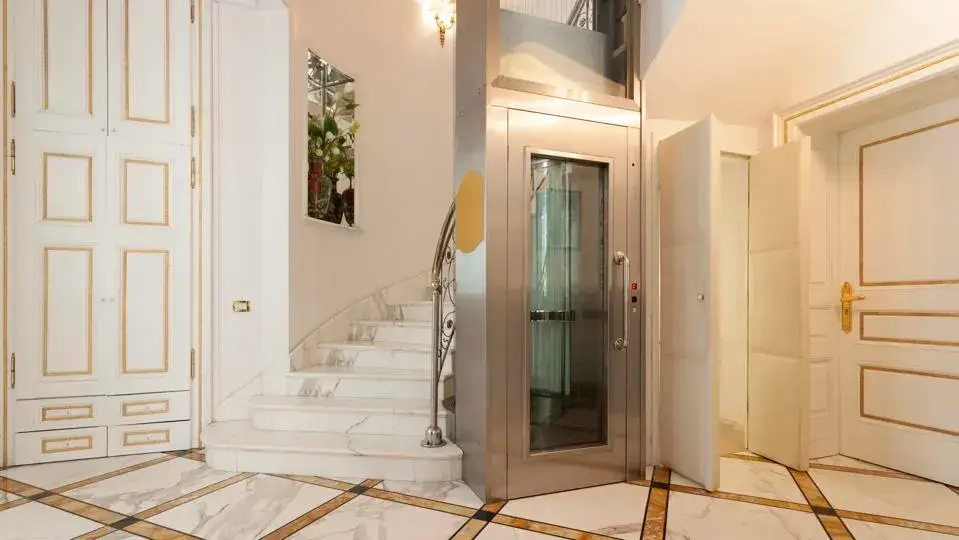We’ll be exploring the world of home elevators! Gone are when elevators were just for commercial buildings or luxury hotels. With advancements in technology and a growing demand for accessibility, home elevators have become increasingly popular among homeowners. Whether you’re looking to add convenience, increase mobility, or enhance the value of your property, choosing the right elevator for your home is crucial. In this article, we will delve into the different types of home elevators available and help you determine which one is best suited for your needs and budget.
What are the different types of home elevators?
When it comes to home elevators, there are several different types to choose from. One popular option is the hydraulic elevator. This type of elevator uses a hydraulic system to lift and lower the cab. It requires a pit below the ground level for installation, making it ideal for homes with basements or crawl spaces. Another type of home elevator is the pneumatic vacuum elevator. These futuristic-looking elevators use air pressure to move the cab up and down. They don’t require a machine room or pit, which makes them easier and more cost-effective to install in existing homes. A compact residential elevator might be your best bet if you’re looking for a space-saving solution. These elevators are designed to fit into smaller spaces like staircases or closets, allowing you to maximize your available floor space. Green elevators are becoming increasingly popular for homeowners concerned about energy efficiency and sustainability. These eco-friendly options utilize regenerative drives and LED lighting systems to reduce energy consumption. If style is at the top of your priority list, consider a custom-designed luxury elevator. From sleek glass cabs with panoramic views to intricate wood finishes and decorative elements, these elevators add an element of sophistication and elegance to any home.
Type of elevator for your home.
For the best elevator for your home, there are a few factors you need to consider. First, consider viewing the space available in your home. A compact and space-saving option like a pneumatic or vacuum elevator might be ideal if you have limited space. On the other hand, if you have more room to work with, a traditional hydraulic or cable-driven elevator could be a great choice. These types of elevators offer smooth rides and can accommodate multiple passengers comfortably. Another important consideration is your budget. Home elevators come in a range of price points, so it’s essential to determine how much you’re willing to spend before making a decision. Remember that installation costs may vary depending on the type of elevator and any modifications required for your home. The best kind of elevator for your home will depend on these factors and your unique requirements. Consulting with an experienced professional can help you make an informed decision that meets your practical needs and aesthetic preferences!
How much does a home elevator cost?
How much does a home elevator cost? This is a common question for homeowners considering installing elevators in their residences. The cost of a home elevator can vary depending on several factors. The type of elevator you choose will impact the overall cost. Different styles are available, including hydraulic elevators, pneumatic vacuum elevators, and cable-driven elevators. Each type has its own unique features and price range. It’s important to note that installing a home elevator can be a significant investment upfront; it can add value to your property in the long run. To get an accurate estimate for your specific needs and requirements, it is recommended to consult with professionals who specialize in home elevators. They will assess your space and provide you with an estimate based on your unique circumstances. Remember that each project is unique, and pricing will vary accordingly. It’s always advisable to do thorough research and obtain multiple quotes before deciding which home elevator is best suited for your needs and budget.
How do you install a home elevator?
Installing a home elevator may seem daunting, but it can be accomplished smoothly with proper planning and professional assistance. Here are some steps to guide you through the installation process:
1. Consultation: Consult with an experienced elevator specialist who can assess your home’s layout and determine the best location for the elevator. They will also help you choose the appropriate type of elevator based on your needs and budget.
2. Permits and Approvals: Before starting any construction work, ensure you have obtained all the necessary permits and approvals from local authorities. Compliance with safety regulations is essential to ensure a smooth installation.
3. Construction Preparation: Once all permits are in place, prepare your home for construction by making any required structural modifications or reinforcements recommended by the elevator specialist. This may involve reinforcing walls or floors to support the elevator’s weight.
4. Installation Process: The installation of a home elevator typically involves assembling various components such as a hoistway, cab, control system, and safety features according to manufacturer guidelines. Specific procedures will be followed during this stage, depending on whether you opt for a hydraulic or traction system.
5. Electrical and Mechanical Connections: To operate efficiently, elevators require electrical connections for the power supply and mechanical connections for the proper functioning of controls and safety mechanisms. Professional electricians should handle these connections to ensure compliance with building codes.
6.Cab Interior Design: While not directly related to installation per se, this step allows you to customize your elevator’s interior design according to personal taste or architectural style preferences if desired.
7. Final Testing & Inspection: After completion of installation, thorough testing is performed, ensuring safe operation without any glitches. A certified inspector will inspect every aspect, including electrical systems, emergency stop function etc, before issuing approval.
8. Maintenance & Servicing: Regular maintenance checks are vital to keep it in good condition once installed. Regular servicing ensures optimal performance while extending the longevity of your home elevator.




